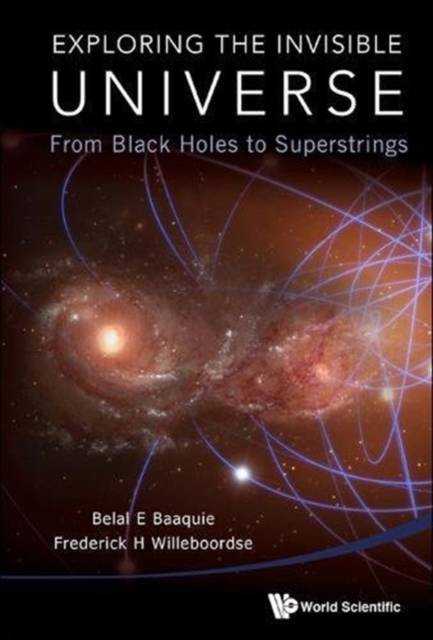
- Retrait gratuit dans votre magasin Club
- 7.000.000 titres dans notre catalogue
- Payer en toute sécurité
- Toujours un magasin près de chez vous
- Retrait gratuit dans votre magasin Club
- 7.000.000 titres dans notre catalogue
- Payer en toute sécurité
- Toujours un magasin près de chez vous
Exploring the Invisible Universe: From Black Holes to Superstrings
Belal Ehsan Baaquie, Frederick Hans Willeboordse
Livre broché | Anglais
73,45 €
+ 146 points
Description
'Why'? Why is the world, the Universe the way it is? Is space infinitely large? How small is small? What happens when one continues to divide matter into ever smaller pieces? Indeed, what is matter? Is there anything else besides what can be seen? Pursuing the questions employing the leading notions of physics, one soon finds that the tangible and visible world dissolves -- rather unexpectedly -- into invisible things and domains that are beyond direct perception. A remarkable feature of our Universe is that most of its constituents turn out to be invisible, and this fact is brought out with great force by this book.Exploring the Invisible Universe covers the gamut of topics in advanced modern physics and provides extensive and well substantiated answers to these questions and many more. Discussed in a non-technical, yet also non-trivial manner, are topics dominated by invisible things -- such as Black Holes and Superstrings as well as Fields, Gravitation, the Standard Model, Cosmology, Relativity, the Origin of Elements, Stars and Planetary Evolution, and more. Just giving the answer, as so many books do, is really not telling anything at all. To truly answer the 'why' questions of nature, one needs to follow the chain of reasoning that scientists have used to come to the conclusions they have. This book does not shy away from difficult-to-explain topics by reducing them to one-line answers and power phrases suitable for a popular talk show. The explanations are rigorous and straight to the point. This book is rarely mathematical without being afraid, however, to use elementary mathematics when called for. In order to achieve this, a large number of detailed figures, specially developed for this book and found nowhere else, convey insights that otherwise might either be inaccessible or need lengthy and difficult-to-follow explanations.After Exploring the Invisible Universe, a reader will have a deeper insight into our current understanding of the foundations of Nature and be able to answer all the questions above and then some. To understand Nature and the cutting edge ideas of contemporary physics, this is the book to have.
Spécifications
Parties prenantes
- Auteur(s) :
- Editeur:
Contenu
- Nombre de pages :
- 488
- Langue:
- Anglais
Caractéristiques
- EAN:
- 9789813220638
- Date de parution :
- 18-05-15
- Format:
- Livre broché
- Format numérique:
- Trade paperback (VS)
- Dimensions :
- 170 mm x 244 mm
- Poids :
- 771 g







